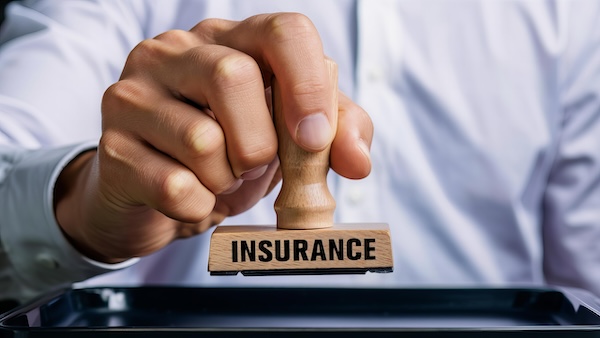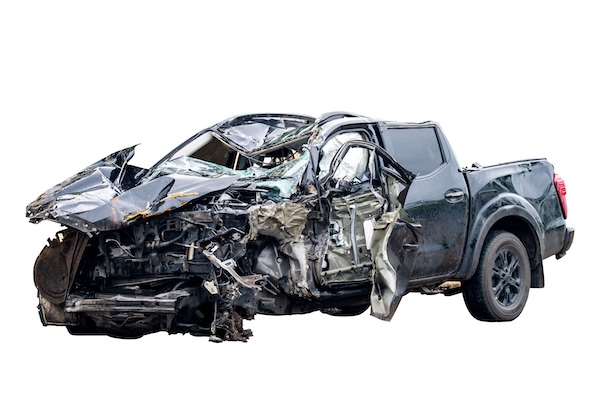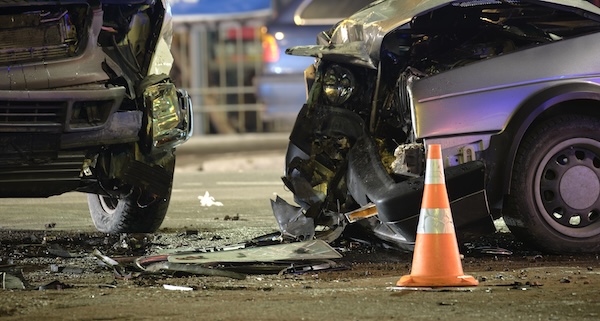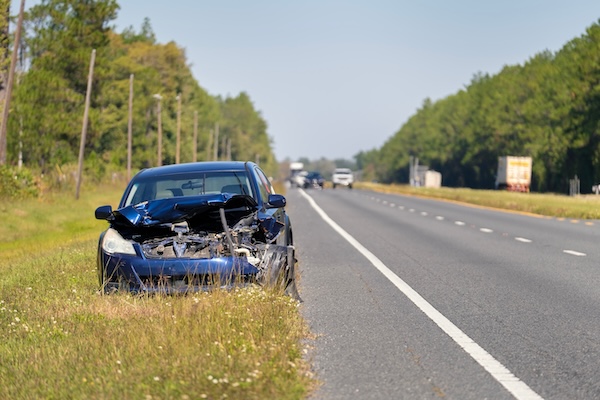Your First Steps Matter After a Car Accident
After an auto collision, your first instinct might be to inform the insurance company immediately. But is that always the best course of action? Understanding what to do after an accident is crucial, especially when dealing with insurance after an accident. One of the most frequently asked questions is: should I talk to insurance after an accident?
The short answer: be cautious. Knowing when and how to speak to an insurance company—whether it’s your own insurance company, the other driver’s insurance company, or any insurance adjuster involved—can significantly impact your car accident claim. In fact, asking should I talk to insurance company after an accident should be the first thing on your mind when navigating post-crash decisions.
Why This Question Matters More Than You Think
The phrase should I talk to insurance company after an accident is more than just a question—it’s a pivotal decision that can shape the outcome of your entire post-accident experience. From the moment the accident occurs, what you say—and what you don’t say—can impact everything from your eligibility for certain types of insurance coverage to how much you’re compensated for medical bills, property damage, and lost income.
Unfortunately, many drivers are unprepared to deal with the influx of questions and pressure that comes from the driver’s insurance company contacts shortly after a crash. They’re often unaware of what they are legally required to disclose and what should be handled exclusively through legal representation.
Without proper guidance, you may unknowingly give information that weakens your injury claim, affects your standing in a potential legal case, or reduces your right to a fair settlement. Understanding the weight of this question—should I talk to insurance company after an accident—is key to protecting your legal rights and financial future.
The Insurance Company’s Primary Goal
It’s essential to understand that the insurance company is a business. Whether you’re dealing with your own insurance company or the other party’s insurance company, their primary goal is not to maximize your payout, but to pay as little money as possible. This is especially true when dealing with an insurance adjuster. That’s why you should always consider, should I talk to insurance company after an accident, before making any statements.
The Role of the Insurance Adjuster
An insurance adjuster is trained to assess claims in a way that minimizes the insurer’s losses. They may seem friendly or helpful, but remember: they represent the insurance company, not you. Be mindful when discussing injury claim details, car repairs, and vehicle replacement costs. If you’re unsure, pause and ask yourself again: should I talk to insurance company after an accident without a lawyer?
Information You Are Legally Required to Provide
When the insurance company contacts you, you must share only basic information: your name, driver’s license number, and the date and location where the accident occurred. You are not obligated to:
- Discuss your injuries
- Provide medical records
- Talk about medical bills or injury related costs
- Offer a recorded statement
This is a vital moment to reassess: should I talk to insurance company after an accident, or should I consult a lawyer first?
The Importance of the Police Report
A police report is a critical piece of documentation that can support your car accident claim. When speaking to any insurance company, refer to this report instead of offering personal interpretations or assumptions about the accident. And always revisit the question: should I talk to insurance company after an accident before you provide any statement.
How the Other Driver’s Insurance Company Operates
The other driver’s insurance company may try to reach out quickly after the accident. Their goal is often to catch you off guard and get a statement that can limit their liability coverage. This is why many experts advise against talking to the other insurance company without legal advice. Ask yourself: should I talk to insurance company after an accident without full legal support?
Car Insurance Policy Obligations
Your car insurance policy may require you to report the accident to your own insurance company in a timely manner. Failing to do so can result in denied claims or limited insurance coverage. However, this doesn’t mean you need to provide extensive details right away. Always consider: should I talk to insurance company after an accident, or should I wait for legal guidance?
Protecting Your Rights With Legal Representation
Hiring a car accident attorney or personal injury attorney can safeguard your rights. A lawyer can:
- Review your insurance policy
- Handle all communications with the insurance company
- Guide you through the legal process
- Help you pursue compensation for lost income, property damage, and physical therapy
They can also help you answer the all-important question: should I talk to insurance company after an accident, or let them do it for me?
Why Recorded Statements Are Risky
Providing a recorded statement to the insurance company can be used against you during your legal case. Even saying something seemingly harmless can be twisted to affect your fair settlement. Always consult with a lawyer first. It’s one of the top reasons why so many people ask, should I talk to insurance company after an accident?
Handling Medical Bills and Records
Never share your medical records or discuss medical payments coverage with an insurance adjuster without guidance. Doing so could jeopardize your ability to claim the full extent of your damages. Again, take a moment to ask: should I talk to insurance company after an accident without consulting an attorney?
The Value of Free Case Reviews
Many law firms offer free consultations or free case reviews. These are great opportunities to ask “should I talk to insurance company after an accident” and get tailored advice. A lawyer can evaluate whether you’re being offered a low settlement and what your legal options are.
The Pitfalls of Talking Too Soon
If you speak to the driver’s company too early, you may:
- Inadvertently admit fault
- Undermine your insurance claim
- Reduce your chances to seek compensation for injury related costs
This makes the question even more urgent: should I talk to insurance company after an accident, or should I wait and protect my rights?
Understanding Personal Injury Protection
If you live in a no-fault state, your car insurance may include personal injury protection (PIP). This can cover some of your medical bills and lost income regardless of who caused the accident. However, coverage varies, and a lawyer can explain your entitlements. It’s yet another moment to consider: should I talk to insurance company after an accident without full understanding?
Dealing With the Claims Process
The claims process can be complicated and emotionally taxing. From phone calls to paperwork, it can be easy to make mistakes. An experienced car accident lawyer can ensure that your insurance claim is handled professionally and accurately—and will help you know the right answer to the question: should I talk to insurance company after an accident?
Talking to Family Members and Witnesses
The insurance company may reach out to family members or witnesses for statements—especially if they believe those individuals can provide information that supports their position or challenges your injury claim. This tactic can be particularly harmful if the statements given are inconsistent, incomplete, or misinterpreted. Even well-meaning loved ones might accidentally say something that undermines your version of events or damages the strength of your legal case.
It’s important to make sure everyone close to the accident understands how serious these inquiries are. Witnesses and family members should be advised not to speak to any insurance adjuster, especially from the other driver’s insurance company, without first consulting with your car accident attorney. Misstatements can be taken out of context and used to reduce your insurance claim, shift liability coverage, or weaken your case for compensation.
Instead, direct all communications through your legal representation to maintain control over the narrative and protect your rights. A qualified personal injury attorney will know how to handle these conversations and ensure the claims process remains in your favor. Always pause and reflect: should I talk to insurance company after an accident, or let a lawyer guide everyone involved?
What to Do If You’re at Fault
Even if you believe you are at fault, do not admit this to any insurance company—not even your own insurance company. Admitting fault, especially early on, can severely damage your ability to recover compensation and could be used by the other driver’s insurance company to reduce or deny your insurance claim. Liability in a car accident is a legal determination based on thorough investigation, physical evidence, and official documentation like the police report—not on your personal feelings or assumptions.
Many factors contribute to fault, and often more than one driver involved shares responsibility. In some states, comparative negligence laws allow you to recover damages even if you were partially at fault. This is why it’s crucial to let your car accident attorney or personal injury attorney evaluate the circumstances surrounding the accident before any statements are made to any insurance adjuster or representative.
If you’re contacted by the other party’s insurance company or anyone seeking a statement, remember: you’re under no obligation to discuss fault. Let your legal counsel manage these conversations to protect your rights and maximize your opportunity to seek compensation. If you’re unsure about what to say or do, remember the golden question that could safeguard your entire case: should I talk to insurance company after an accident?
Key Documents to Prepare
Before engaging with any insurance company, it’s essential to have all relevant documentation organized and readily available. This preparation can significantly affect the outcome of your insurance claim and protect your rights throughout the claims process. Gather the following:
- A copy of the police report: This provides an official account of how the accident occurred and can help establish fault.
- Photos of the accident and property damage: Visual evidence of the scene, vehicle condition, and any visible injuries can support your car accident claim.
- Medical bills and estimates for car repairs: These help demonstrate the true cost of the injury related costs and damage to your vehicle.
- Your car insurance policy and coverage details: Know your liability coverage, medical payments coverage, personal injury protection, and any limits on your insurance coverage.
- Documentation of lost income and physical therapy needs: If your injuries have impacted your ability to work or required ongoing treatment, include those records too.
- Any communication from the other party’s insurance company or insurance adjuster: Keep a log of phone calls, emails, or letters.
- A list of family members or witnesses who can verify your version of events.
Being well-prepared ensures you’re not caught off guard when speaking to an insurance adjuster or your own insurance company. Only once you’re fully organized and understand your legal options should you revisit the critical decision: should I talk to insurance company after an accident?
Conclusion: Think Before You Speak
So, should I talk to insurance company after an accident? The safest answer is: not without proper guidance. Insurance companies are focused on protecting their bottom line—not your recovery. Every word you say could be used to minimize your claim or deny your right to fair compensation.
If you’ve been involved in a car accident, don’t take unnecessary risks. Before speaking to any insurance company, contact [phone] a qualified car accident lawyer or personal injury attorney who can stand by your side, protect your rights, and handle the process with experience and authority.
Don’t wait until it’s too late to secure the compensation you deserve. Schedule a free consultation today to discuss your case, understand your legal options, and start building a strong strategy to pursue compensation. Your future could depend on it—make the call that makes a difference.
Make informed choices. Stand up for your rights. Take action now and let a legal expert guide you to the fair settlement you’re entitled to.







